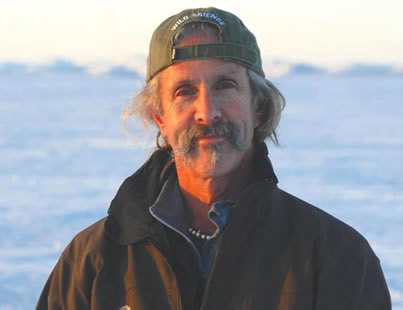A WCS Senior Conservation Scientist, Dr. Joel Berger conducts research across five continents while also working in his own backyard to train local scientists and students. From the impacts of energy development on Yellowstone’s pronghorn to wild yak surveys on the Tibetan Plateau, Berger’s research spans human-wildlife interactions, long-distance migrations, and climate change. He has written four books on wild horses, rhinos, bison, and fear in prey species, and co-edited a volume on large carnivores and biodiversity.
Currently, Dr. Berger focuses on the conservation of species and intact ecosystems. Research highlights include:
Long-distance migration by mammals and conservation of migration corridors
Effects of predator reintroduction on the ecology of prey species and the structure of vertebrate communities
Pronghorn in Migration
Pronghorn in migration
Impacts of climate change in the Arctic to muskoxen
Conservation of large mammals in Bhutan, Tibet, and Mongolia.
By engaging with local communities dependent on the land—from elders in coastal Arctic villages to wildlife managers on the Tibetan Plateau—he aims to promote sustainable use of natural resources that take into effect the needs of both people and wildlife.
Along with his position at WCS, Dr. Berger holds the John J. Craighead Chair of Wildlife Conservation at the University of Montana. In 2013, he received the Aldo Leopold Award from the American Society of Mammologists; in 2009, he was honored with the LaRoe Memorial Conservation Award from the Society for Conservation Biology. He has been selected as a fellow of the American Association for Advancement of Sciences and twice received the Rolex Foundation's Meritorious Project Award.
Lishu with telemetry
Graduate student Lishu Li tracking ibex in the Gobi Desert
Dr. Berger’s efforts continue to inspire the next generation of scientists and citizen supporters of conservation. Along with mentoring graduate and post-graduate students, Dr. Berger has communicated the importance of conservation to the public through the media, and his work continues to influence public policy.
Dr. Berger was raised in Los Angeles, received his PhD from the University of Colorado, and served as a Smithsonian Research Associate in Animal Ecology for more than 15 years.
Joel Berger is a conservation biologist, and serves currently as the John J. Craighead Chair of Wildlife Biology at the University of Montana and as a senior scientist at the New York-based Wildlife Conservation Society. Joel has worked primarily with mammals larger than a bread box including moose, caribou, muskoxen, bison, pronghorn and elk in more than a dozen American national parks; he has also studied black rhinos in Africa as well as elusive takin, chiru, wild yak, and saiga in central Asia. Using conservation and science as diplomacy, Joel has built bridges between protected area management by uniting fieldwork in USA parks with those in Bhutan, on the Tibetan Plateau, and in the Russian Arctic (Beringia). Long-distance migration, climate impacts, and predator-prey relationships are never far from his thoughts. Most centrally, however, Joel notes that conservation improvements cannot be done in the absence of remembering that people must play a role. Joel has been the recipient of several Guggenheim awards, is an elected fellow of the American Association for the Advancement of Sciences, and has received lifetime achievement awards from the Society of Conservation Biology and American Society of Mammalogists. He has written five books.

